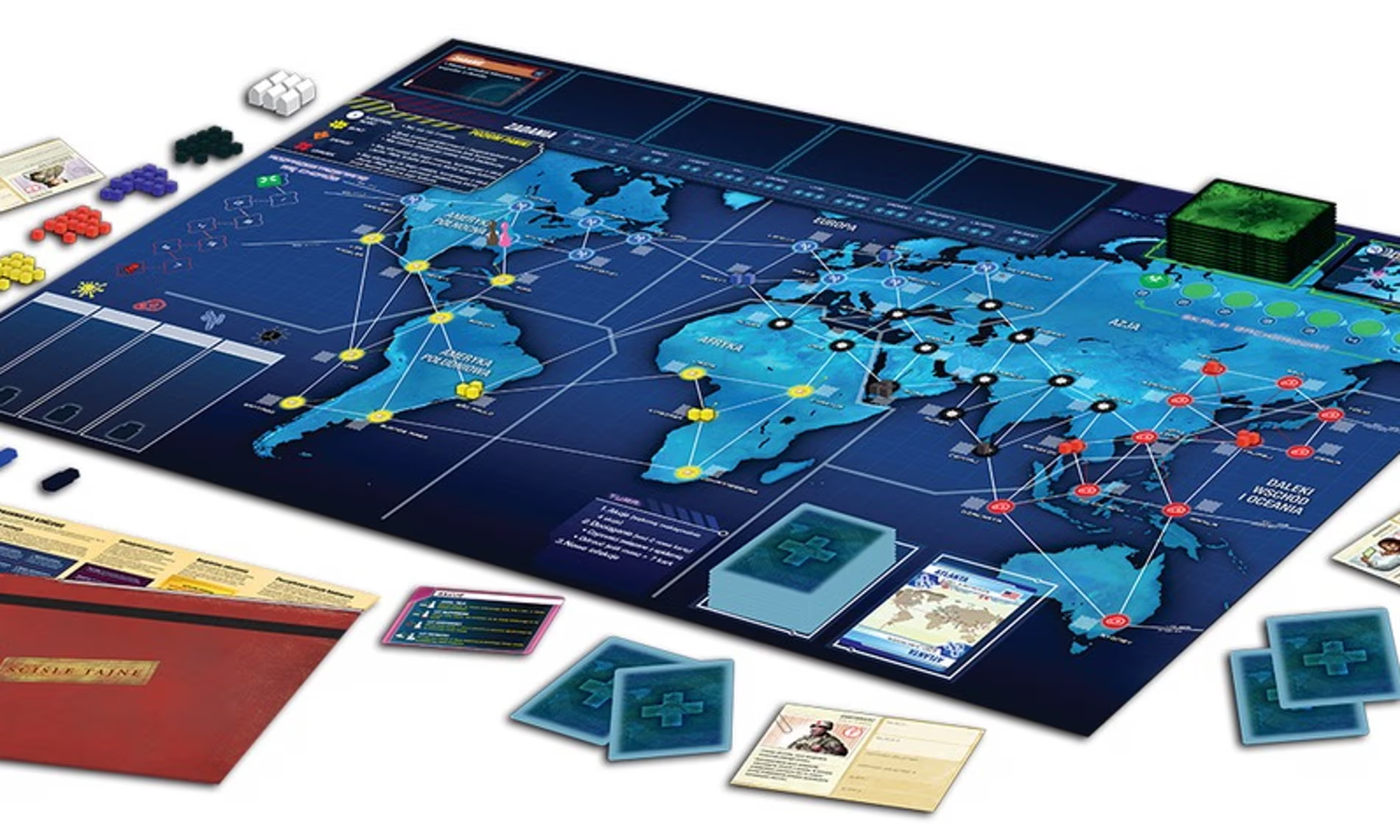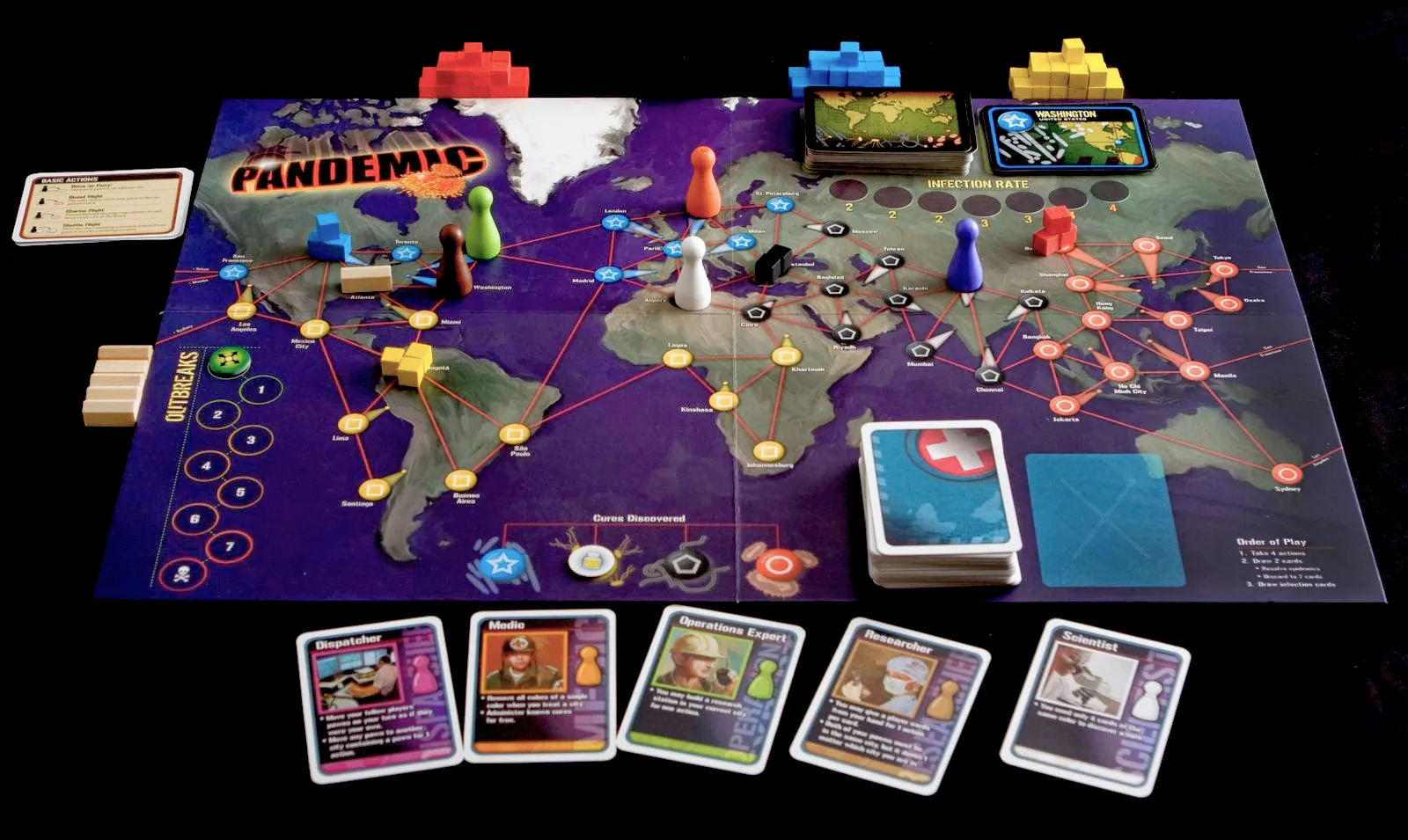
🦠 The Birth of Pandemic Legacy: A New Way to Play Board Games
Before Pandemic Legacy, board games followed a traditional structure—reset after every play. In 2015, designers Matt Leacock and Rob Daviau introduced a groundbreaking concept: a campaign-driven experience where player choices permanently affect future games.
Based on the popular Pandemic (2008), this new version added a persistent world, evolving storylines, and permanent changes to the board. Players felt the stakes grow higher as they made irreversible decisions that shaped their game’s future.
This innovation turned Pandemic Legacy: Season 1 into one of the highest-rated board games of all time, reshaping the industry and inspiring new legacy-style games.
🎲 What Makes Pandemic Legacy Unique?
Unlike classic board games that offer the same experience every time, Pandemic Legacy introduced a changing game state.
Key Innovations of Pandemic Legacy:
- Permanent Game Changes – Players destroy cards, alter rules, and write on the board, creating a unique story.
- Episodic Gameplay – The game unfolds across 12 to 24 sessions, mimicking a season-based TV show.
- Evolving Challenges – New diseases, mechanics, and events emerge, forcing players to adapt their strategy.
- Emotional Investment – Players become attached to their evolving world, making each victory (or loss) feel significant.
These features transformed board gaming from a single-session activity into an immersive, ongoing narrative experience.
🌍 The Success & Expansion of the Pandemic Legacy Series
After the massive success of Pandemic Legacy: Season 1, two sequels expanded the franchise:
Pandemic Legacy Expansions & Sequels:
- Pandemic Legacy: Season 2 (2017) – Set decades after Season 1, featuring a post-apocalyptic world with new survival mechanics.
- Pandemic Legacy: Season 0 (2020) – A prequel set in the Cold War era, where players fight biological threats instead of diseases.
Each installment built upon the evolving world of Pandemic Legacy, further cementing legacy games as a staple in modern board gaming.

🏛 How Pandemic Legacy Changed the Board Game Industry
The Pandemic Legacy history is not just about one game—it redefined an entire genre. After its success, the legacy mechanic spread across various board game genres.
Notable Legacy Games Inspired by Pandemic Legacy:
- Risk Legacy (2011) – The first legacy-style game, created by Rob Daviau.
- Gloomhaven (2017) – A legacy-driven dungeon crawler with persistent character progression.
- Clank! Legacy (2019) – A deck-building adventure game with evolving maps and mechanics.
- My City (2020) – A legacy-based city-building game, showing the mechanic’s versatility beyond storytelling games.
By combining long-term consequences with cooperative gameplay, Pandemic Legacy demonstrated how board games could offer deeper, more immersive experiences.
💻 Pandemic Legacy in the Digital Era
As board gaming transitioned to digital platforms, Pandemic Legacy remained a physical-only experience. Unlike classic Pandemic, which has an official digital version, the legacy format’s permanent changes make it difficult to adapt to online play.
However, players have created fan-made digital versions using platforms like Tabletop Simulator, allowing people to experience the game remotely.
🎭 Conclusion: A Legacy That Endures
The Pandemic Legacy history proves that a well-designed game can revolutionize an entire industry. By introducing permanent consequences, evolving storylines, and deep cooperative mechanics, it set a new standard for narrative-driven board gaming.
Whether you’re playing Season 1, Season 2, or Season 0, each game delivers a unique, unforgettable experience.
Featured Image Source - Pandemic Legacy, ready to play. Photograph: Z-Man Games



